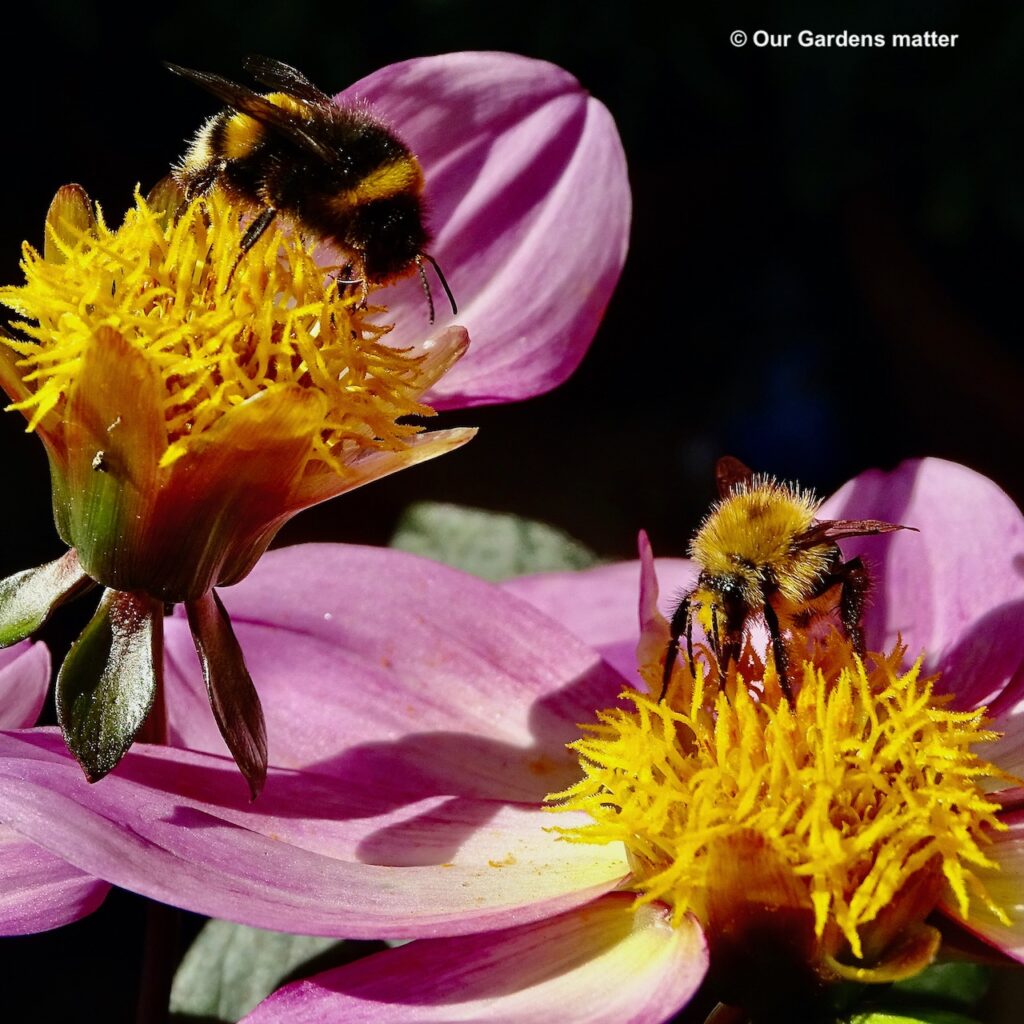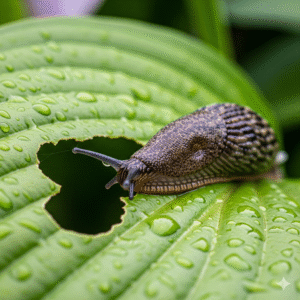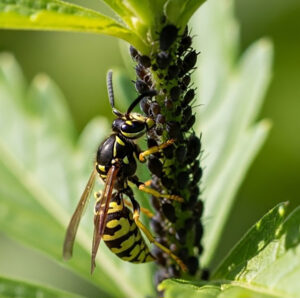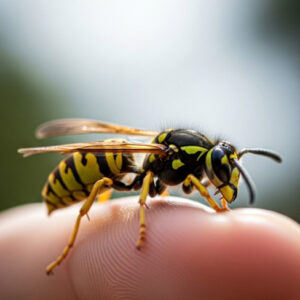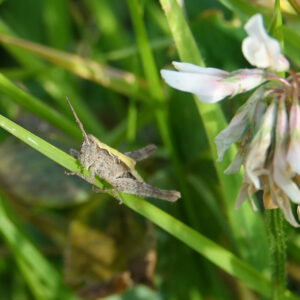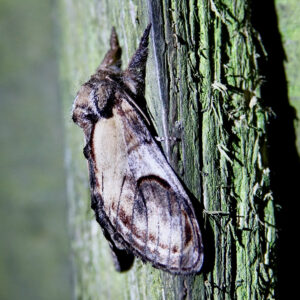Read on to find out how fake news regarding sugar water, Sir David Attenborough, the BBC and bees lead to social media’s removal of posts. Plus, why the Our Gardens Matter author does not recommend sugar water for exhausted bees.
By Our Gardens Matter
Someone back in 2018 posted fake news on social media claiming that Sir David Attenborough recommended giving a spoonful of sugar water to bees. The BBC had to step in and announce that our nation’s favourite environmentalist and broadcaster, Sir David, did not make this claim and ‘rightly said’ it could, in fact, actually harm bees. The social media boffins swiftly sent out their cyber-space algorithmic robot thingamajig or whatever the technical term is these days to take down the posts. Unfortunately, by now, it had spread like wildfire, shared millions of times by unsuspecting good folk suddenly wanting to help bees. People took it even further and made bee-feeding stations.
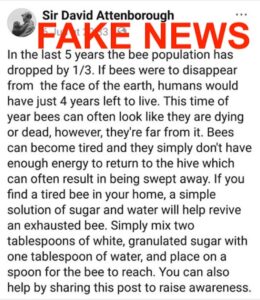
Maybe the intention was good, as the post did convey that our bee populations are declining, which is partially true, but you need to understand which bee species, as not all are in decline. But I somehow suspect, due to the underhanded tactics, that someone out there probably had a good laugh at the thought of people’s gullibility in believing everything they read and the hilarious possibility of 100s of bees descending on our properties could be seen as funny. You see, bees ‘really’ are very clever creatures; they communicate with each other on where to find the best food source. So, you can see where I am going here – why work when you can get junk food handed out for free?
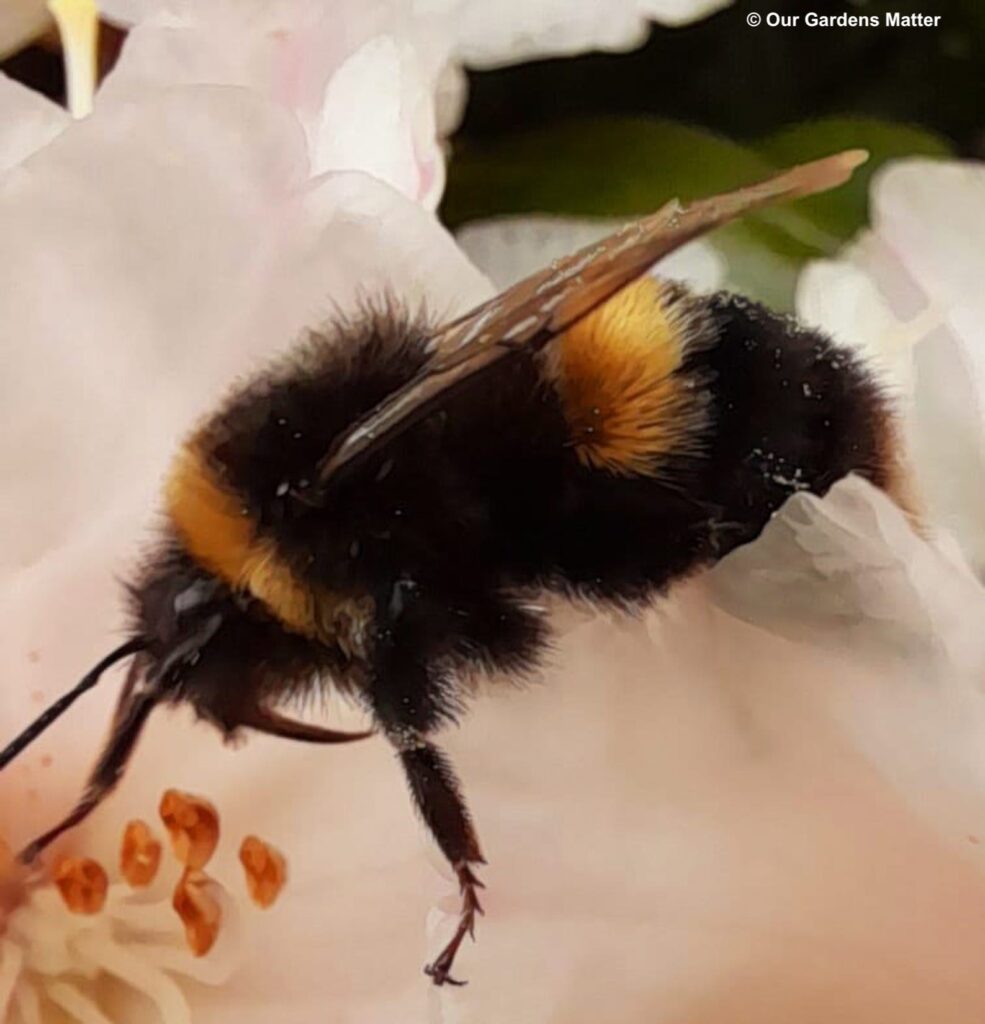
But seriously, misinformation posts like this can have serious consequences. We want our bee friends to stay healthy and do what they do best pollinate our flowers and crops. Leaving sugar water out is like saying to bees, ‘Why visit flowers when you can get free handouts!’, leading to lazy bees!
Not only is sugar water a distraction for bees, but bee feeding stations can also spread serious diseases and change how bees behave, affecting nests and beehives. Sugar water lacks any nutritional value and eventually causes health issues for the bees. It ‘really’ comes down to common sense – doesn’t it? Our lives depend on pollinators like bees pollinating our plants and crops. So if you want to help bees, you need to grow lots of beautiful bee-friendly single-flowering blooms in your garden, and you will also be helping the planet in the process!
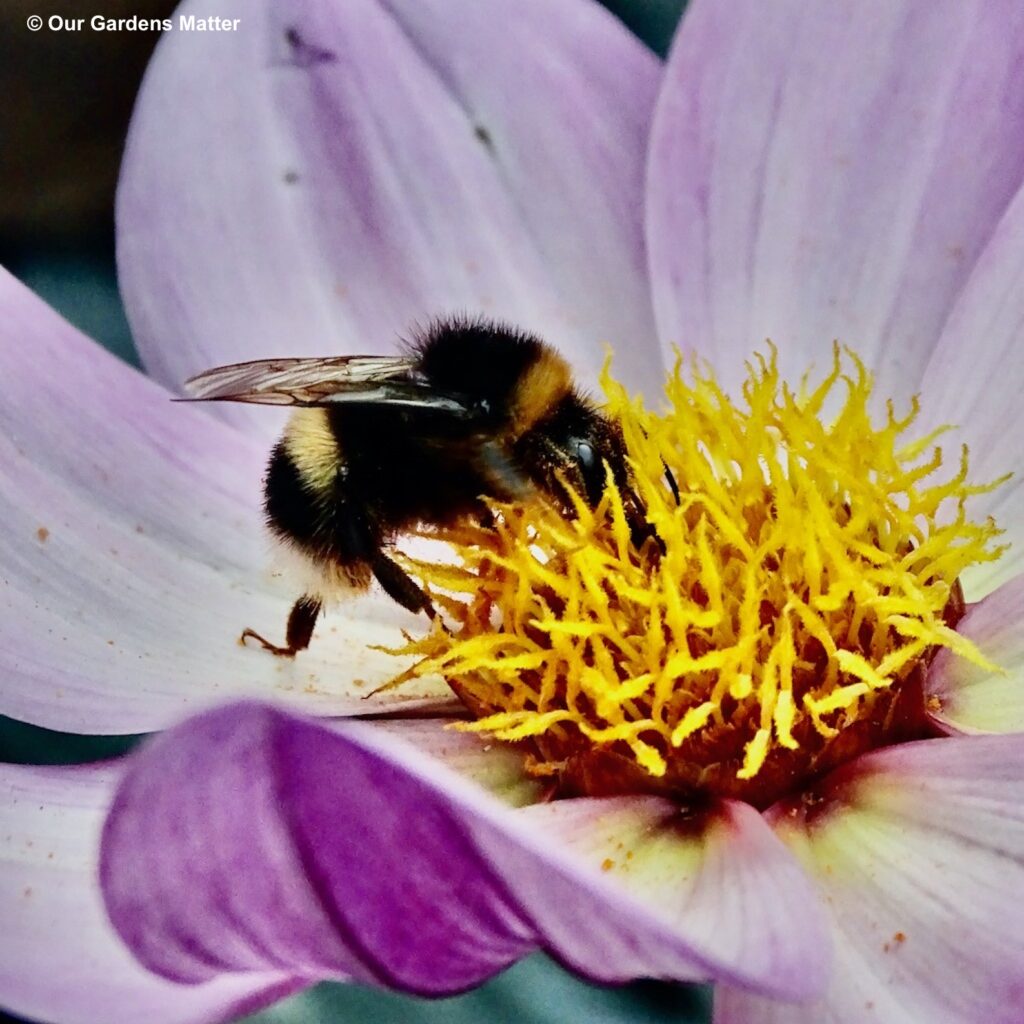
So what about feeding sugar water to exhausted bees?
Everybody seems to be an expert on this one – and people tend to agree that it is helpful, with some experts saying only as a last resort. The Beehive website even goes as far as to claim if anyone disagrees, they are just practising click bate because they will conclude it is helpful at the end of the day. Sorry to disappoint you on that one, but my argument is that where it may give the bee a kick start, it does not mean you are helping the bee.
One mistake people make is reading about and copying what beekeepers do without understanding the circumstances and differences between species of bees. Beekeepers typically provide a sugar solution to honey bees in September or October to supplement their reduced honey reserves and ensure they have enough food to survive the winter. However, it is vital to note that offering a sugar solution during the peak honey-making season could potentially disrupt the bees’ natural process.
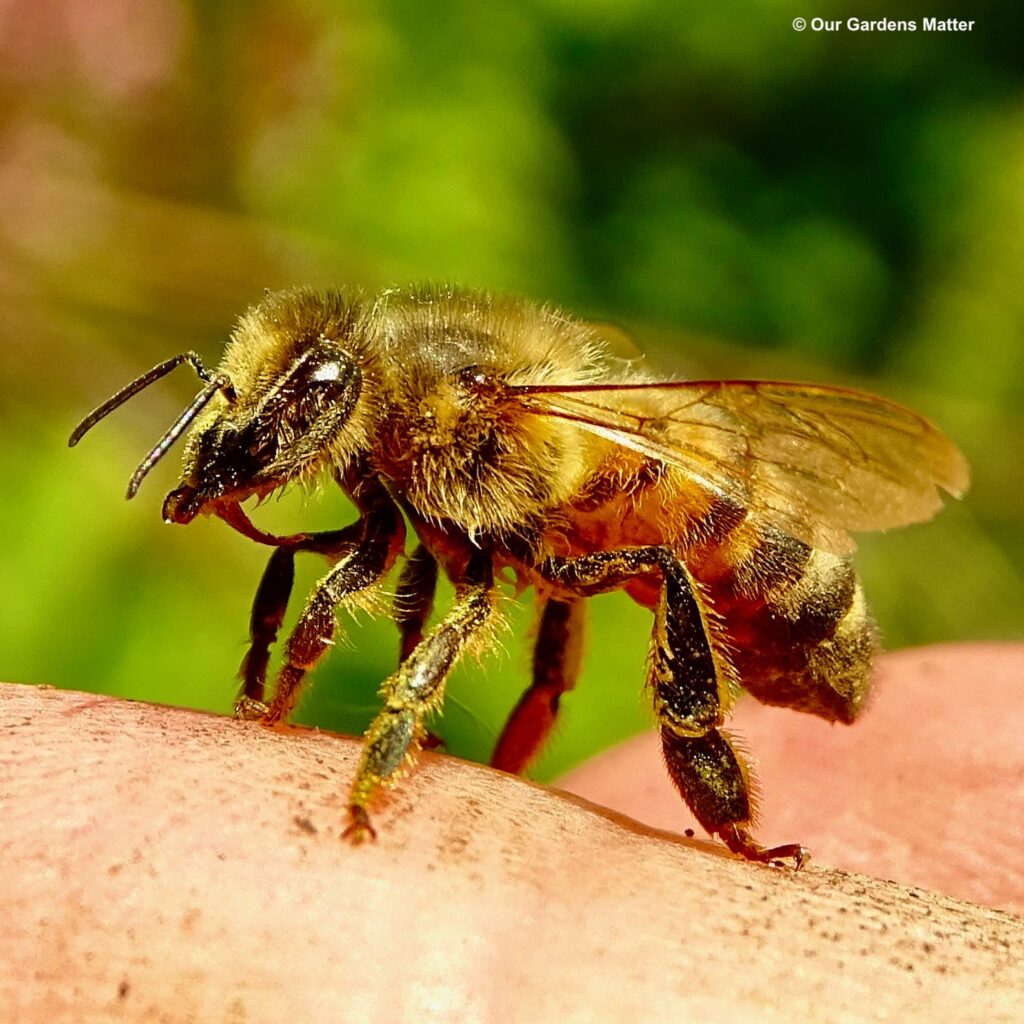
So from here on, when we mention bees, we will refer to bumblebees, of which there are 24 different species; 25 if you count the reintroduced Short-haired bumblebee.
Let’s think about this for a moment! Bees are busy creatures, and naturally, they get tired and need rest and time to clean themselves. It does not mean they need help, but if someone comes along and offers sweet sugar water on a spoon, why not have a free drink anyway. The problem now facing the bee is it has a stomach full of sugar water, a massive energy boost, and no need to visit a flower but no vital nutrients or protein in the process. At this point, survival kicks in, and the hungry bee returning to the nest may eat the eggs to gain protein. So, although you may have saved a bee, you may have inadvertently wiped out a batch of eggs.
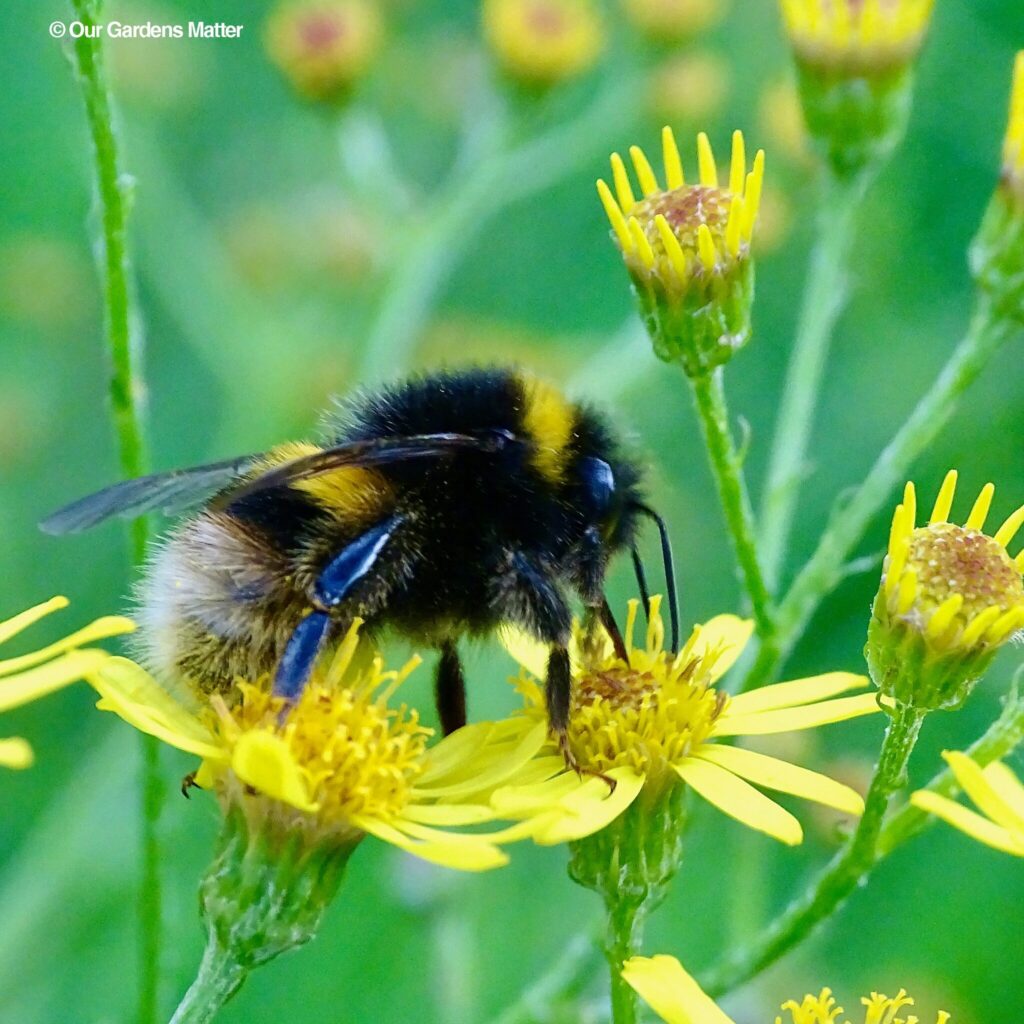
Next, bees can have short lives, sometimes only a few weeks, so you may find a very slow bee indicating it may be near the end of its life. You are doing the bee no favours in prolonging the inevitable with sugar water. It will not improve the bees’ chances.
Another reason a bee may be on the ground, especially in the morning, is because it has not yet warmed up enough to fly. You may see bees taking little jumps and vibrating their wings. Bees naturally warm up by contracting flight muscles, which can take several minutes or more. Bees don’t need sugar water to help with this.
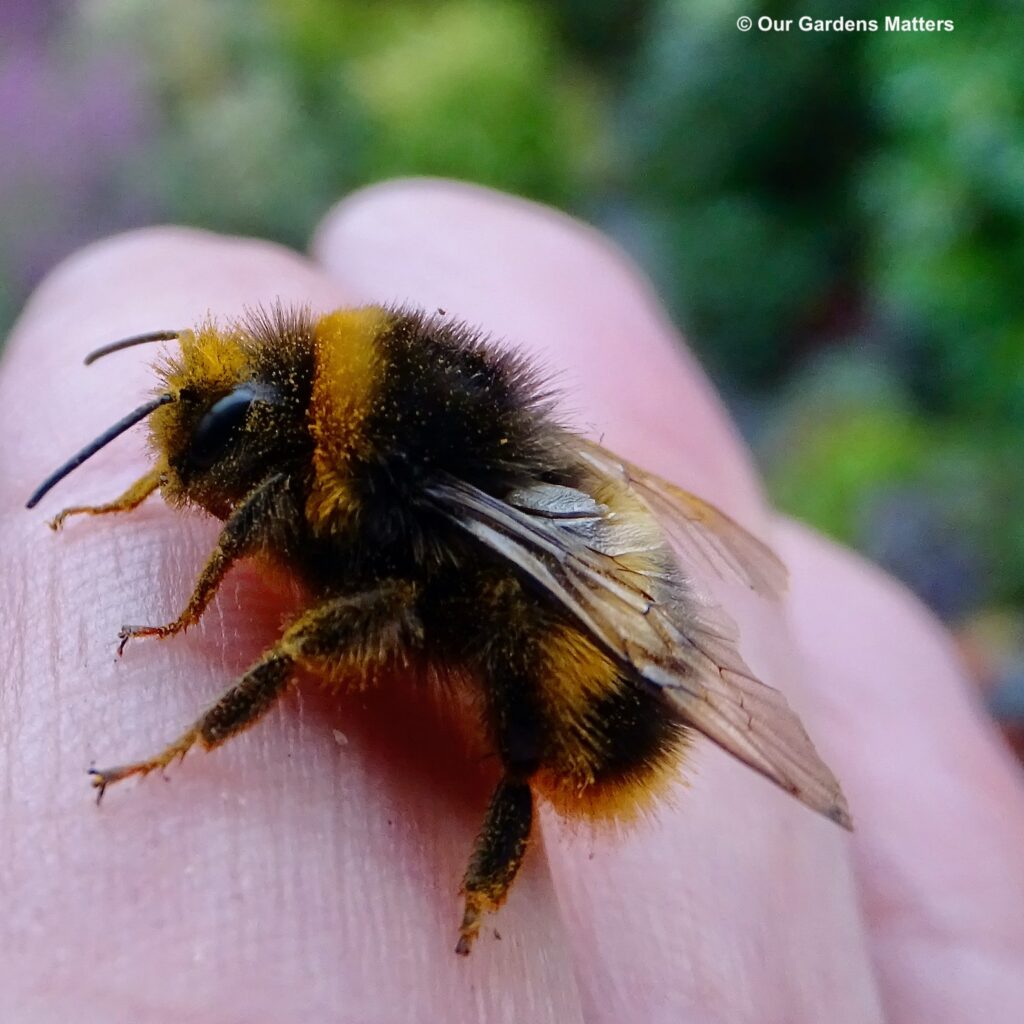
So how do you help a bee found on the ground?
I always advise to keep it simple! If you find a bee grounded and are concerned, pop it onto a bee-friendly flower. Here it can reach all the natural nutrients it requires to recover as nature intended, assuming the bee is in trouble, but nature will ultimately decide the fate. “This is the way”.
Make sure to grow plenty of flowers in your gardens, window boxes, hanging baskets and containers. On mild winter days, bees may venture out, so grow snowdrops, crocus, aconites and hellebore for early bees. Do your homework and you will always have something in flower for bees.
All the bees you see pictured in this blog article, apart from the below, have been successfully rescued by the author using his recommendations outlined – which is to place the bee on a bee-friendly flower. Bumblebees are generally docile creatures and rarely sting if you are gentle with them
